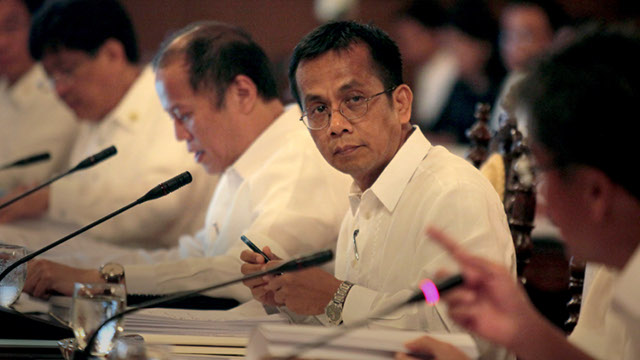SUMMARY
This is AI generated summarization, which may have errors. For context, always refer to the full article.

MANILA, Philippines – After the historic passing of the sin tax reform law and despite the consistent position of the Aquino economic team to improve tax administration first before hiking taxes, the National Economic and Development Authority (Neda) chief wants to pursue other revenue generating laws.
In a statement on Thursday, January 24, Neda Director General and Socio-Economic Planning Secretary Arsenio Balisacan stressed that the government needs new sources of revenues to improve the country’s fiscal performance beyond 2016.
The passage of priority tax legislation will complement the efforts of other revenue generating agencies, including the Bureau of Internal Revenue (BIR) and Bureau of Customs (BOC). Both are pursuing name-and-shame campaigns and slapping cases against alleged tax evaders and smugglers.
In the Socioeconomic Report (SER) for 2010-2012, the Neda said these Tax Measures must be passed:
- Simplified Net Income Taxation Scheme
- Strengthening the Anti-Smuggling Provisions of the Tariff and Customs Code
- Customs and Tariff Modernization Act
- Fiscal Incentives Rationalization
“Achieving our revenue targets depends heavily on several factors, including the approval of tax reform laws. These, in turn, would reduce our deficit as a share of our economy, as measured by the gross domestic product (GDP),” Socioeconomic Planning Secretary Arsenio Balisacan said.
Fiscal performance
The SER reported that the country’s revenue and deficit levels are on track towards achieving their targets as articulated in the Philippine Development Plan: 2011-2016.
The report said that collection effort of Bureau of Internal Revenue (BIR) rose from 9.1% of GDP in 2010 to 9.5% in 2011 and 10.3% in the first half of 2012, while non-tax revenue collection rose from 1.3% share of GDP in 2010 to 1.6% and 1.8% in 2011 and first semester of 2012, respectively.
“According to the SER, overall revenue in 2011 was highest for the past decade even without new taxes and significant asset sales. This means that reforms in tax administration, including the passage of the sin tax law, will provide the ground work to support fiscal sustainability in the coming years,” said Balisacan.
As to the country’s debt situation, Balisacan cited the SER which reported that the debt-to-GDP ratio has fallen from 52.4% in 2010 to 50.9% in 2011.
Balisacan said in the first half of 2012, the outstanding debt-to-GDP ratio declined to 47.1% on the back of the government’s prudent spending and debt management. He said it is the government’s hope that the downtrend will continue and hit the government’s targeted ratio of 42.8% by 2016.
“In the medium term, we remain committed to bring down the country’s deficit and debt to manageable levels. Any development involving these variables will impact on the fiscal targets,” Balisacan said. – Rappler.com
Add a comment
How does this make you feel?
There are no comments yet. Add your comment to start the conversation.